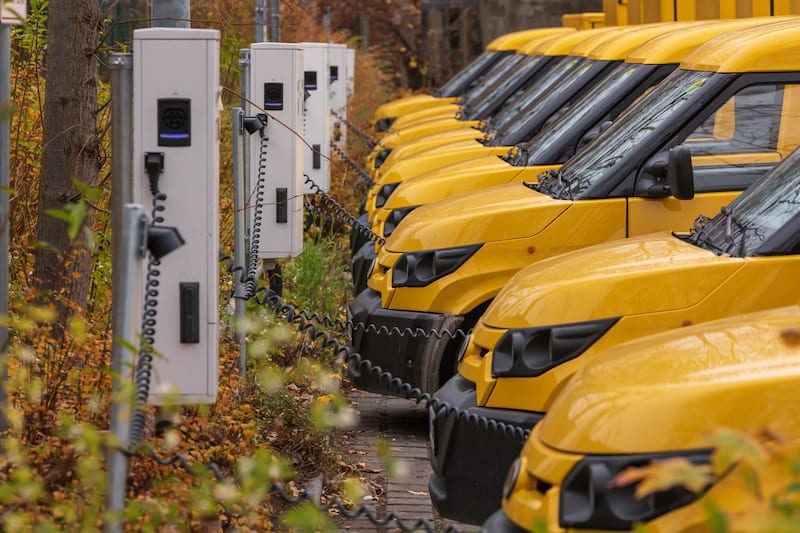

Abdi Mude
Abdi is a recruitment consultant within the FM team, he specialises in placing Energy and Sustainability experts leading FM companies.
But Facilities Management organisations have had a handle on many of the UN’s 17 goals for some time, and have in fact been leading the way in implementing several of them for their clients, most especially goal 11 – Sustainable Cities and Communities.
The built environment is responsible for 25% of the total UK carbon footprint. So it has a critical role to play in reaching the government target of Net Zero by 2050. This means facilities management companies will be a key player in moving businesses towards this goal.
By giving FMs the responsibility and the freedom to track sustainability data, and inviting them to be a part of setting the strategy, our workplaces can attain net zero much quicker.
Net zero sustainable workplaces
A net zero energy building is one that produces as much energy as it consumes on a yearly basis. It’s a lofty goal, but one that’s becoming increasingly achievable.
Net zero energy buildings are becoming popular for good reason. It puts power back into the hands of businesses and reduces their impact on the environment at the same time.
Businesses need to consider environmentally friendly facilities management to ensure sustainable workplaces. Facilities managers will be key to implementing sustainable practices to reduce wastage. This includes resource usage (such as chemicals), electricity, gas, water and waste disposal.

There are obvious environmental benefits to sustainable facilities management.
Reducing energy usage and waste will help to curb climate change. A high-quality recycling scheme will divert waste from landfill.
But on top of this, there are huge cost savings benefits like reduced utility bills and longer-term operating costs. Companies who prioritise the health and wellbeing of their staff see lower levels of sick leave and lower turnover rates. There may be an increase in employee satisfaction and engagement related to company values. More people are prioritising environmental responsibility when they look for their next role. In response, company reputation receives a boost by committing to environmental schemes and sustainable workplaces.
Similarly, more end user clients are asking for environmental responsibility stats in their RFPs. Those who are taking it seriously have a competitive advantage. Added to that, many companies now have to meet sustainability and environmental targets set by government. Being ahead of the game, both in what your company implements, and the services offered to clients, will give you an advantage.
What sustainable practices are FMs bringing to the market?
Facilities management professionals can play a major role in promoting sustainable workplaces and practices. Here are some of the ways FM companies are leading the way in sustainability.
Eco cleaning
By switching to greener cleaning solutions, harsh chemicals are being eliminated from the eco system.
Cleaning solutions such as Toucan Eco are giving FMs the option of cleaning and sanitising without using chemicals. Made from water, salt and an electric current, Toucan makes cleaning safer and more environmentally friendly. It removes the need for single use plastics, chemical transportation, and resource wastage.
Other solutions, such as eco dosing, ensure that cleaners don’t overuse chemicals or waste water.
Water filtration
By fitting water filtration devices to floor and window cleaning machinery, grey water can be recycled for up to a week, reducing water usage by up to 40%.
Washrooms
Every year, expensive and environmentally damaging washroom paper towels create 3 million tons of waste, and over 3.5m tons of CO2, costing £10.5 billion globally. Smart hand dryers reduce energy usage by up to 66% and can also collect data on footfall. Replacing paper towels with efficient hand dryers reduces carbon dioxide by around 40g.
Energy efficiency
By collecting and analysing detailed data, FMs are in the perfect place to work on energy saving strategies. Both through their in-house cleaning or via their chosen supply partners, FMs can make tactical improvements.
Zero waste to landfill schemes
FMs are finding ways to introduce reduce, reuse, recycle programmes with their clients. These begin with an education campaign with staff, and aim for all waste to be diverted away from landfill.

Electric fleets
Soft facilities management companies responsible for security services are doing their bit too. FM companies such as Mitie have signed up to EV100. This is an important drive to make electric transport the norm by 2030. Switching their diesel vans to an electric fleet will cut emissions down a huge amount.
Carbon footprint
The smaller your carbon footprint, the less greenhouse gas emissions you produce and the lower your impact on our planet. This means that by reducing your carbon footprint, you’ll be doing your part to slow climate change down. Facilities Management RFPs have expanded their sustainability requirements over recent years. This means the need to measure and improve on carbon emissions and sustainability initiatives is greater than ever.
Sustainability is a key metric for facilities management organisations and their clients. The key to improving sustainable workplaces will be data collection and utilisation. There are 9 major areas that facilities managers will need to be analysing in order to make recommendations to their clients:
- Energy
- Water
- Carbon Dioxide
- Waste Management
- Recycling
- Sustainable Transport
- Employee Health and Wellbeing
- Sustainable Procurement
- Local Community

